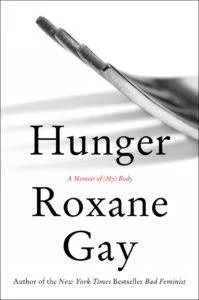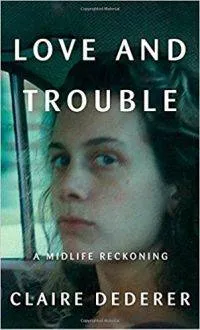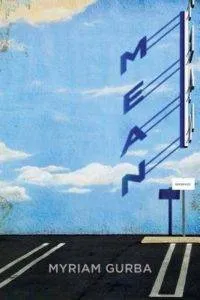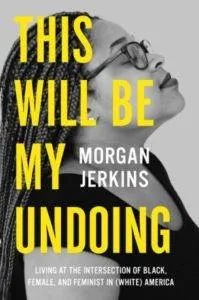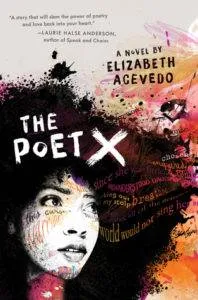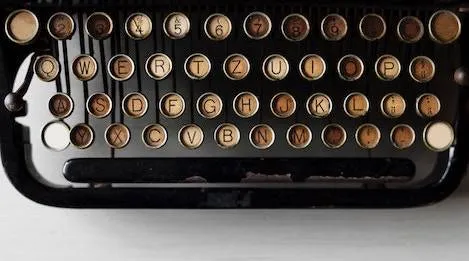
5 Women Writers Whose Raw Honesty Has Blown My Mind
Last night, I crawled into bed early to finish a review copy of Morgan Jerkins’s This Will Be My Undoing (January 2018). A collection of autobiographical essays that tackle race and gender, I knew it would be a stunner from the very first page, and it was. There were lines, in fact, that made me sit up straight because of how perfectly they elucidated certain issues. The entire book was an education.
More than anything else, however, I was struck by its raw honesty, by the sharing of an interior life that was not always pretty, but which was powerful in its sincerity. And it’s not the first book I’ve read this year to grip me with its levels of honesty. In fact, open, honest, strong writing by equally strong women writers is only becoming more prevalent.
Much has been made of the “confessional” writing of women. This style of writing is often denigrated; many of the subjects touched upon in such works relegated to women-only categories deemed not serious enough for, well, “serious literature.” Which I think is a load of hooey. When people demean such writing, it’s partially because they want to silence it, and to suppress the conversation around certain topics. But lately, women writers haven’t been content to just shut up, or even to modulate their writing in order to make it more palatable to others. Which makes me giddy.
Hunger by Roxane Gay
The first book to tear me apart this year with its openness and vulnerability was Roxane Gay’s Hunger, a lyrical memoir in which the author opens up about her relationship to her body, the sexual violence that informed this relationship, and the ways in which other people relate and react to her. We live in an age in which the body positivity movement has become so mainstream that it is often co-opted by diet pushers and fitness gurus who proclaim they can give us “healthy” bodies, versus the “skinny” bodies they peddled before. So in addition to the ways in which Gay is generous with her stories of sexual violation and its aftermath, it is also freeing to see her admit to an incredibly complex relationship with her body, one in which she seesaws back and forth between loving and hating and being sort of okay with it.
Love and Trouble by Claire Dederer
Several months later, I read Dederer’s memoir, which blindsided me in how different it was from the yoga memoir she’d written all of seven years previously. It stuck with me, too, in how brazen it was, in how she seemed to just casually reveal the worst parts of herself—or rather, what I saw as the worst parts of myself, things I could never imagine revealing to the wider world—as if she had zero fucks left to give. The memoir is about reconciling the young woman she used to be with the woman she has become in midlife. But for me, what stood out—and what stayed with me—were lessons in sexuality and power, and in a deep wanting to be wanted.
Mean by Myriam Gurba
I feel as if the entire bookternet has been raving about this book, and with good reason. A friend and I decided to read it together and I think each of us barreled through it in just two evenings. She ended up passing it on to her husband, who also loved it. So what makes this lyrical coming-of-age memoir so damn awesome? Personally, I think it’s Gurba’s voice. The glimpse she gives us into the inner workings of her mind. Yes, this book tackles sexual assault and queer sexual awakening and race and justice and everything else that makes for an important and gripping read. But no one else could have told this story the way Gurba does. The casual coarseness with which she describes various violations, unwilling to pretty up her experiences for readers. The ways in which she reveals her deepest, darkest thoughts. The way in which she is unapologetic about protecting herself from additional harm. We’ve been needing this.
This Will Be My Undoing by Morgan Jerkins
Jerkins accomplishes a lot in this book. I’ve already mentioned this up above. But on top of all of this is her willingness to share some of the things that have brought her shame. The contortions she has forced herself into in order to be accepted by white society. The ways in which she has compared herself to other black women. She also completely owns her sexual wants—even as she struggles with the inherent power imbalances that exist when it comes to sex—an attitude that is discouraged among women in general, and among black women in particular.
The Poet X by Elizabeth Acevedo
This is the only non-memoir on this list, but I can’t help including it. It’s a young adult novel written in verse (whaaat?). It’s told from the point of view of a young woman growing up in Harlem, grappling with her place in the world, afraid to speak her truth. The poetry that fills the book? The contents of her notebook (and also, if you’ll allow me to be corny, the contents of her heart). She eventually discovers slam poetry and gains the strength and courage to speak her truth out loud, in an incredibly powerful way. Though I wasn’t sure how I’d feel about the format, I was ugly crying by the end.
After reading so many powerful voices this year, I’m hungry for more. I hope this run of strong women growling out their truths keeps building, becoming a mighty roar. What are your favorite women writers?



